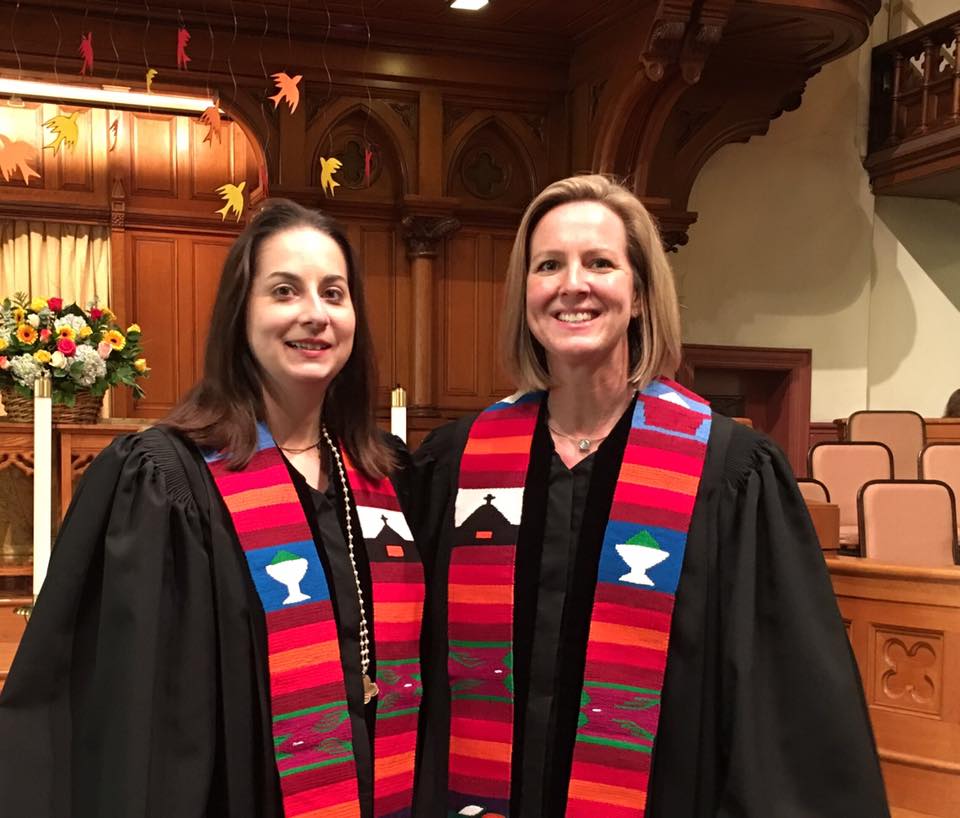On May 22, 2018, after more than a hundred years of affiliation, the Southern Baptist Convention officially severed ties with the D.C. Baptist Convention over its refusal to exclude from membership the historic Calvary Baptist Church, a 155-year-old D. C. congregation founded by abolitionists. At issue was Calvary’s decision in 2017 to call Rev. Maria Swearingen and Rev. Sally Sarratt, a married lesbian couple, as co-pastors.
For more than a century, the DCBC has seen itself as a bridge between Baptist groups, remaining dually aligned with both Southern Baptists and the American Baptist Churches USA. In 1997, the DCBC widened its affiliation by uniting also with the predominantly black Progressive National Baptist Convention, and later with the Baptist World Alliance.
The SBC Executive Committee first communicated concern about Calvary early in 2017, just days after they called their new pastors. In February of this year, Dr. Robert Cochran, Executive Director/Minister of the DCBC (and a member of our congregation), flew to Nashville to meet personally with members of the SBC Executive Committee. Shortly thereafter, the Committee issued an ultimatum that the DCBC cut ties with Calvary within 90 days or face expulsion from the Southern Baptist Convention. Robert requested a conference call with SBC leaders so that a way forward might be negotiated, and relationship preserved. The Executive Committee declined Robert’s request for conversation, choosing to communicate through an attorney who informed Robert by letter that he had “too many things to tend to that have a higher priority” and advising DCBC leaders “to work toward excluding the errant church from your fellowship by the date of May 20th.”
Southern Baptists’ fixation on exclusion has been a sad reality for decades. Since the 1970s, the SBC has established meticulously orchestrated, fiercely defended systems of exclusion that have done immense harm to churches and individuals.
The DCBC Board chose a different path.
The day before the SBC Executive Committee’s May 20 deadline, I sat in a circle with other DCBC board members and staff who had gathered to talk and pray together about this matter. There was a spirit of kindness in the room. We began with a devotional led by board President Paula Moustos who read from Romans 14: “Why do you judge your brother or sister? Or why do you look down on your brother or sister?... Each of us will give an account of ourselves to God.”Everyone was asked to share from his or her perspective about the matter at hand. I shared from my own personal relationship with Maria and Sally, two of the finest pastors I know. There was diversity of thought, as many board members come from the black church tradition which has been historically reluctant to welcome the LGBTQ community.
What unified the group was our commitment to the bedrock Baptist principle of autonomy of the local church. “My church would not make the same choice as Calvary in calling our leaders,” said one board member. “But they listened closely to the Spirit, and who are we to say otherwise?” It was then pointed out by another board member (to a chorus of “Amens”) that Calvary was the first Baptist church in the District to welcome black people into membership in 1954. Calvary’s prophetic voice and their commitment to justice were acknowledged and affirmed. In the end, those present voted unanimously to reject the SBC’s demand to exclude Calvary Baptist Church from membership in the DCBC, even if it meant being excluded ourselves by the Southern Baptist Convention. While there was sadness for some over the whole situation, there was a sense of peace, too.
I was honored to sit in that circle of fellowship and discernment that Saturday morning in May. I’m grateful for Robert Cochran’s leadership, and that of the board. Mostly, though, I am grateful for the Holy Spirit, who continues the hard and holy work of knitting us together in the body of Christ.
Peace and grace,



